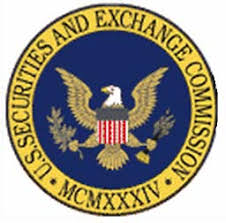 The company will hire 150 to 200 engineers at its powertrain center in the technology hub of Bangalore, P. Balendran, vice president at General Motors India Pvt. Ltd., told a news conference to launch an automatic transmission version of the Chevrolet Cruze sedan.
The company will hire 150 to 200 engineers at its powertrain center in the technology hub of Bangalore, P. Balendran, vice president at General Motors India Pvt. Ltd., told a news conference to launch an automatic transmission version of the Chevrolet Cruze sedan.
GM India to Hire 1,000 Staff in 2010
How long can the U.S. dollar defy gravity?
Facing mounting inflation and the escalating cost of the Vietnam War, President Richard Nixon, on August 15, 1971, took the United States off the gold standard, which had been in place since 1944 and required that the Federal Reserve back all dollars in circulation with gold. The move amounted to a made-in-America double-digit devaluation, shocking the country's foreign creditors.
Nearly 40 years later, the dollar still dominates world trade. At the height of the financial crisis in 2008, investors fled to the dollar as a temporary safe haven. But the dollar has been falling steadily since 2002, and as the world economy recovered last year, dollar selling resumed, reviving doubts about how long it could remain the world's unrivaled reserve currency.
Credit cards then and now: A look at how the new law changes the rules
 The new credit card law is finally here. Starting Monday, banks will need to abide by new regulations on terms and disclosures. The idea behind the landmark law was to prevent banks from using practices that often dug borrowers deeper into debt.
The new credit card law is finally here. Starting Monday, banks will need to abide by new regulations on terms and disclosures. The idea behind the landmark law was to prevent banks from using practices that often dug borrowers deeper into debt.A look at how the credit card law affects key aspects of your account.
More...
Wall Street's Bailout Hustle

Goldman wasn't alone. The nation's six largest banks — all committed to this balls-out, I drink your milkshake! strategy of flagrantly gorging themselves as America goes hungry — set aside a whopping $140 billion for executive compensation last year, a sum only slightly less than the $164 billion they paid themselves in the pre-crash year of 2007. In a gesture of self-sacrifice, Blankfein himself took a humiliatingly low bonus of $9 million, less than the 2009 pay of elephantine New York Knicks washout Eddy Curry. But in reality, not much had changed. "What is the state of our moral being when Lloyd Blankfein taking a $9 million bonus is viewed as this great act of contrition, when every penny of it was a direct transfer from the taxpayer?" asks Eliot Spitzer, who tried to hold Wall Street accountable during his own ill-fated stint as governor of New York.
Secret Banking Cabal Emerges From AIG Shadows:
 The idea of secret banking cabals that control the country and global economy are a given among conspiracy theorists who stockpile ammo, bottled water and peanut butter. After this week’s congressional hearing into the bailout of American International Group Inc., you have to wonder if those folks are crazy after all.
The idea of secret banking cabals that control the country and global economy are a given among conspiracy theorists who stockpile ammo, bottled water and peanut butter. After this week’s congressional hearing into the bailout of American International Group Inc., you have to wonder if those folks are crazy after all.Revealed: See Who Was Paid Off In The AIG Bailout
 An unredacted document obtained by the Huffington Post list the damage in detail. Goldman Sachs alone, for instance, got $14 billion in government money for assets worth $6 billion at the time -- a de facto $8 billion subsidy, courtesy of taxpayers.
An unredacted document obtained by the Huffington Post list the damage in detail. Goldman Sachs alone, for instance, got $14 billion in government money for assets worth $6 billion at the time -- a de facto $8 billion subsidy, courtesy of taxpayers.
The New York Fed initially pressured AIG to keep the list hidden from investors, regulators and the public. When it was eventually filed with the Securities and Exchange Commission, the SEC allowed the Fed and AIG to keep the details secret. A heavily-redacted version was made public last March.
SEC mulled national security status for AIG details
 U.S. securities regulators originally treated the New York Federal Reserve's bid to keep secret many of the details of the American International Group bailout like a request to protect matters of national security, according to emails obtained by Reuters.
U.S. securities regulators originally treated the New York Federal Reserve's bid to keep secret many of the details of the American International Group bailout like a request to protect matters of national security, according to emails obtained by Reuters.
The request to keep the details secret were made by the New York Federal Reserve -- a regulator that helped orchestrate the bailout -- and by the giant insurer itself, according to the emails.
More Articles...
Page 42 of 70

 Economic Glance
Economic Glance






























